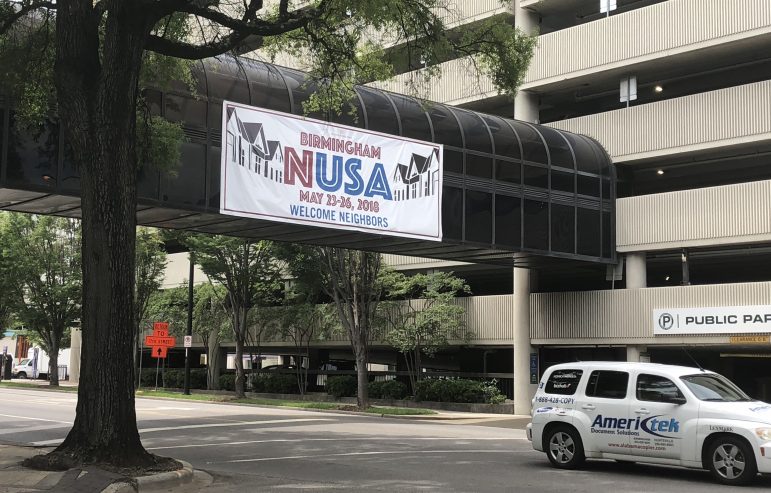More than 800 people from around the country are in Birmingham this week for the annual Neighborhoods USA (NUSA) Conference. Local neighborhood leaders say this is their time to show off Birmingham.
“Birmingham is a dynamic city and it has a rich history. I’m ready to show people what’s happened here in recent years,” says George Lee, president of Birmingham’s Spring Lake Neighborhood Association and a member of the NUSA Board of Directors.
Neighborhood tours are planned to take visitors around the city. They will also have an opportunity to sample the food and city culture.
This is the third time the organization of neighborhood leaders has met in Birmingham in its 43-year history. Lee says Birmingham has changed since the group was last here in 1995.
One of the highlights of the conference includes a panel discussion with Mayor Randall Woodfin and two other Southeastern mayors discussing rebirth and revitalization of communities. The panel will also include Jackson, Miss. Mayor Chokwe Antar Lumumba and New Orleans Mayor Latoya Cantrell.
In addition to the adult conference, a youth NUSA Conference will take place for the first time. It’s designed to educate youths from ages 12 to 18 on how they can have an impact in the future through neighborhoods, communities, and city government, organizers say.
Jimmie Coleman, president of Birmingham’s Citizens Advisory Board, Birmingham’s community leadership group, says neighborhood leaders benefit from participating in NUSA.
“We get ideas from other places and bring that information back. We didn’t know about Brownfields projects until we went to a NUSA conference in Ohio and saw what they were doing up there,” Coleman says. The U.S. Environmental Protection Agency administers the Brownfields grant program, which funds the cleanup of former industrial sites so they can be reused.
“It’s all about learning things that can improve your neighborhood,” Coleman says.

